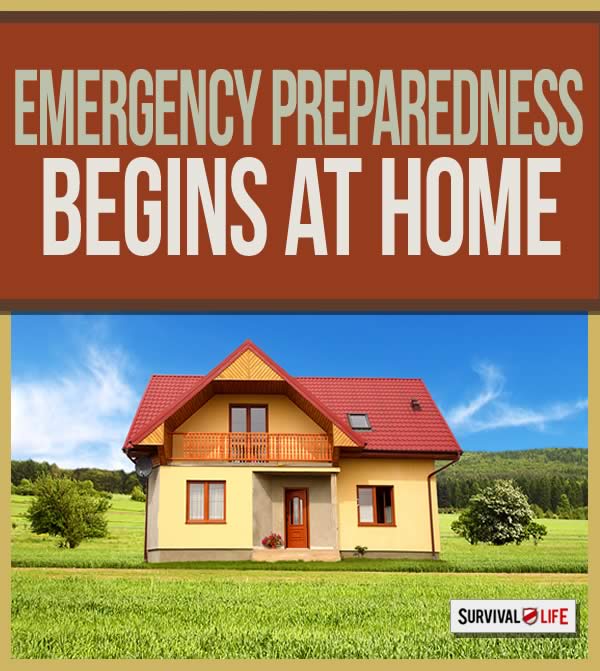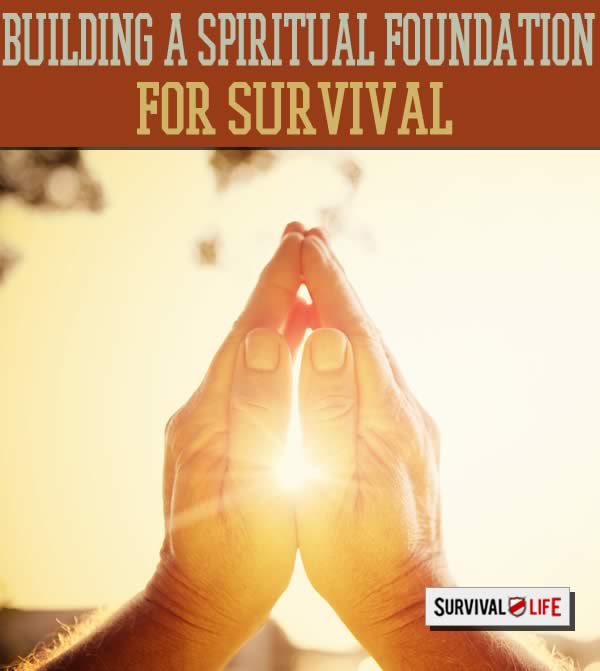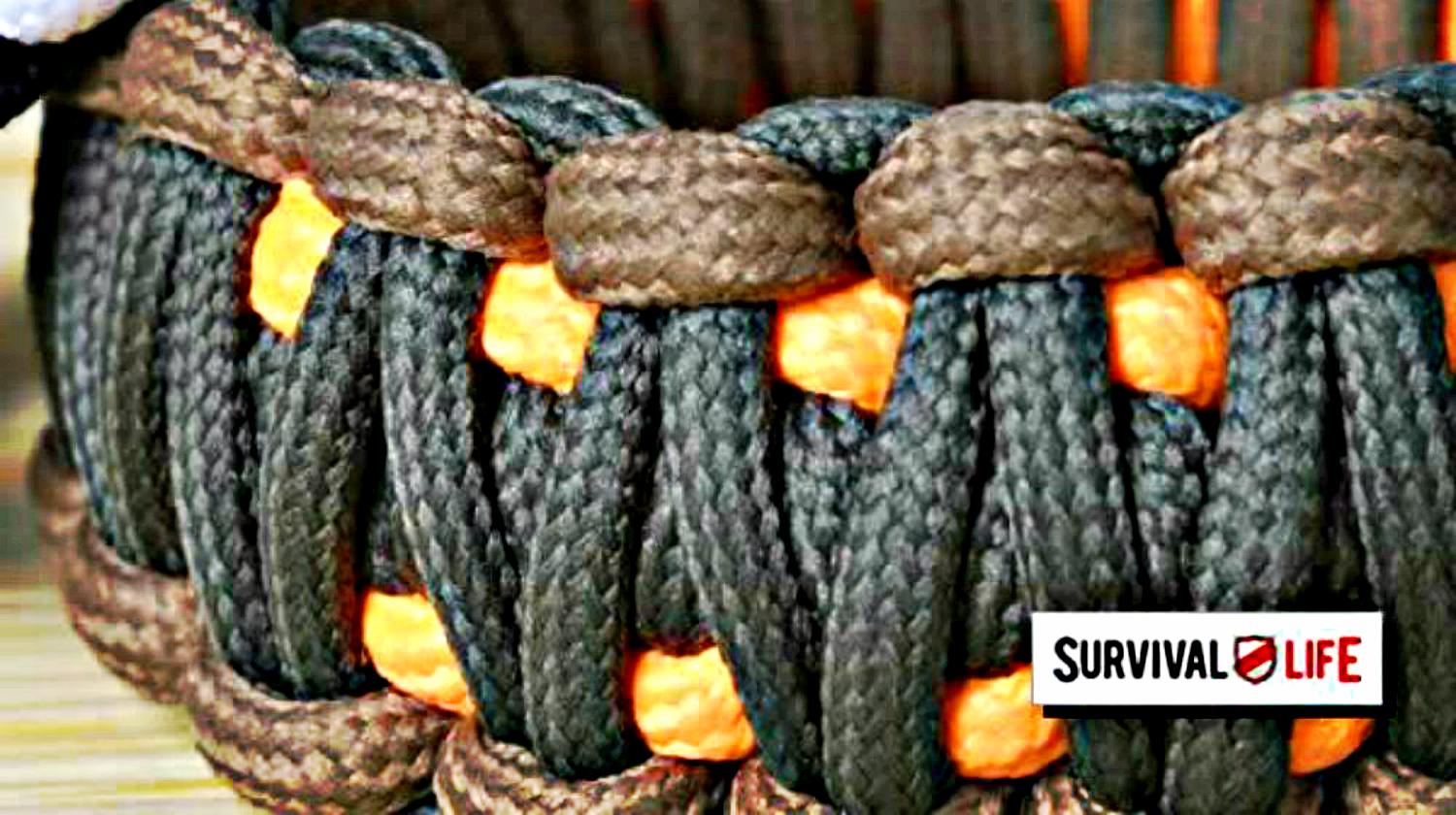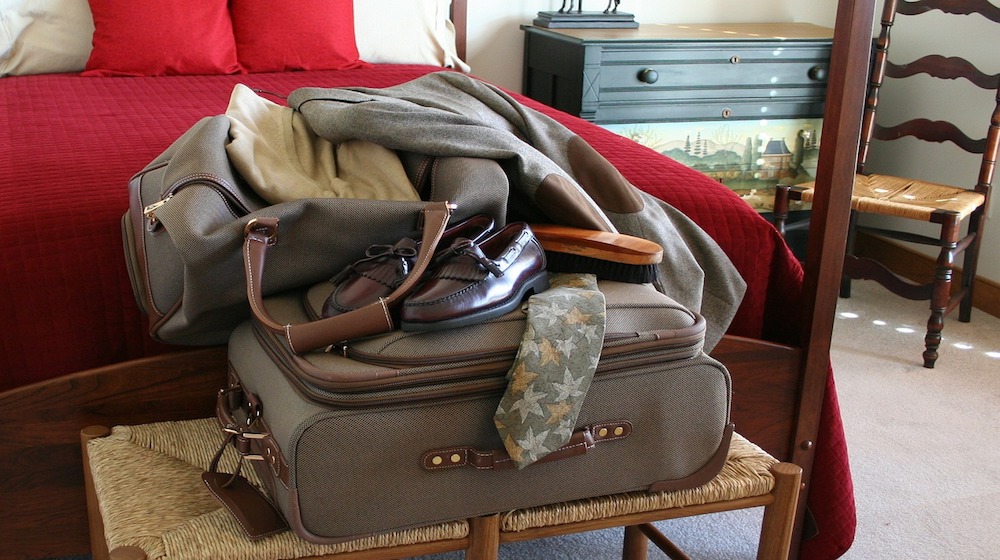Featured Articles
To Bug Out or Stay In? That is the Question

Every prepper knows what it’s like to pack your bug out bag and think of all the scenarios when you might need it, from the common to the most outlandish. But the truth is we hope we never actually have to use our bug out bag. Just because we prepare for these situations and know what to do doesn’t mean we want or hope for them to happen. We’re just aware of the possibilities and know how important it is to be ready.
Hopefully, you won’t ever need your E/PAK or bug out bag. However, being prepared for such an eventuality is good for easing your mind.
My personal desire is that I’ll never need my E/PAK for an emergency. Yet, it will always be in a special location in my home near a protected exit, filled with all the things I’d need for hunkering down when a natural disaster, such as a wind, ice, or snowstorm, or a people-caused disaster causes a power outage.
Lots of people tell me they plan to bug out. Personally, I plan to stay at home unless a lifethreatening disaster requires my departure. There is no place I want to go––except maybe to an expensive hotel. However, with my personal 72-hour; kit, I could even endure a public shelter, if necessary.
I’ve spent a weekend in a church recreation hall during an ice storm with several other families––it wasn’t too bad, except for the lack of privacy. I’ve also spent a few days at my parents’ home––all the kids, grandkids, and all their collective dogs.
But heading for the unfamiliar hills, living in the wilderness fraught with unknown dangers, chasing wild animals with switches, fending off others in a similar plight to mine, while trying to maintain an urban lifestyle, does not seem a good option to me. The very thought of getting on the freeway or city streets during or following a disaster, competing for space with all those folks carrying handguns (even if they do have permits) and other nefarious weapons, is just a little frightening. On the streets I cannot defend myself adequately. At home, I can maintain my independence as long as I have my personal provisions to sustain me until the crisis is past.
My personal plans in the case of a local disaster––such as an electrical failure––are to make the best of a bad situation, enjoy the intervention in my normally extra-long workday, and spend it with my wife (and the dogs) in the ensuing peace and quiet. It would be a moment to have another honeymoon, savor the quiet, and listen to all those archived short-wave radio programs I’ve wanted to listen to for ages…
But If You Must Bug Out…
However, if you must leave home unexpectedly (perhaps like those in California who were forced to evacuate due to wildfires), be sure to have the following information ready to go with you:
- daily contact details for family members
- local reunion points
- out of area contacts
- pertinent family operating data
You should record information about the daily whereabouts of family members and how they can be contacted. It might be appropriate to keep this information on the family bulletin board (in our house it’s the refrigerator), in each E/PAK, and even in your wallet. Remember to update as contacts or locations change.
Keep in mind that during times of natural or people-caused disasters, local telephone service is often disrupted. Therefore, each member of the household should carry the name, phone number, and address of a person who is designated as an out-of-area contact. (Note: long distance lines often remain useable during emergencies. Additionally, the phone company’s emergency network is the pay phone system. It will be restored before residential lines.) If separated, each family member should call the designated out-of-area contact and communicate his particular situation within a certain period of time, reporting his physical condition, his location, and other information as previously agreed upon. Keep adequate change in your E/PAK for making pay phone calls.
Emergency Preparedness Begins at Home
Responsibility begins in your own home. You are responsible for protecting yourself, your family, and your property to the best of your capability. This entails planning and preparing your own resources to:
(1) Respond to,
(2) Mitigate the effects of, and
(3) Recover from natural and people-caused disasters that can become your personal disaster(s).
The preparation level should exceed the risk level of the expected and unexpected emergencies or disasters in a particular geographic location.
Being prepared requires learning about potential disasters and emergencies, knowing first aid, CPR, and other life-saving skills. Adaptability and independence are critical qualities to develop in one’s preparation efforts.
Unfortunately such self-reliance skills are not taught in most schools. Usually they are learned at the hands of a bad experience––a tough taskmaster, indeed! There is no easy way to become self-reliant. It requires work, meaningful efforts in selfeducation, and often a large measure of self-denial. Utilize all the knowledge you can gain to prepare for the disasters which could cause you and your family more than the loss of your car, your property, or your crops.
The above article was taken from Dr. Prepper’s Making the Best of the Basics by James Stevens, which is now available to Survival Life readers at half-price. Just click here and enter coupon code present to get your copy for only $19.97!
Want to know more? Check out these related articles:
- Your First Bug Out Bag – 50 Essentials For Your Kit
- Things To Consider Before Bugging Out
- Disaster Preparedness: Reasons to Bug Out or Bug In
Follow us on Facebook, Instagram, Twitter, Tumblr, and Pinterest!
***Disclaimer: The contents of this article are for informational purposes only. Please read our full disclaimer.***
Editor’s Note: This post was originally published on January 30, 2015, and has been updated for quality and relevancy.
-

 Do It Yourself7 months ago
Do It Yourself7 months agoParacord Projects | 36 Cool Paracord Ideas For Your Paracord Survival Projects
-

 Do It Yourself9 months ago
Do It Yourself9 months agoHow To Make Paracord Survival Bracelets | DIY Survival Prepping
-

 Do It Yourself9 months ago
Do It Yourself9 months ago21 Home Remedies For Toothache Pain Relief
-

 Do It Yourself9 months ago
Do It Yourself9 months agoSurvival DIY: How To Melt Aluminum Cans For Casting
-

 Exports8 months ago
Exports8 months agoAre Switchblades Legal? Knife Laws By State









TrpodXL
February 4, 2015 at 11:03 PM
@DocP; The admonition to be prepared is the goal to aspire to. The daily schedule and communications are key to being “aware” of what’s going on. My POV, that I preach on a number of sites and guest posts are that bugging out is a last resort. The rest of what I preach involves LIVING IN YOUR BOL. If you have selected properly, your BOL should be as “immune” as possible to the most common disasters. The perfect BOL, is Cheyenne mountain. After that are the best BOLs you can find. At least 50 miles from the gulf coast on around to Maine. Your elevation should be over 300′ ASL. Stable geology, adequate resources (timber, water, arable land, etc.), wild game if possible, not too populated, populated enough, social resources, not located by local hazards (downstream from a dam, nuke power,…), etc. You should have a plan B, BOL within a tank of fuel from your primary location. Bugging out should not be your PRIMARY PLAN. Just sayin. If you aren’t a 26-30 yo, Army Ranger, you’re not bugging out for any significant period of time or distance. It’s not happening. Add a wife and children and see how that works out. BUGGING OUT SHOULD BE A LAST RESORT, or you haven’t planned properly, period. Now, should you have to bug out, it should be planned, not an “oh shit we have to bug out”. I mentioned pens, pencils and paper and notebooks on another site and someone accosted me and said “what do you need that shit for?” If you have to ask, you wouldn’t understand the explanation. Anyway a lot of people don’t include those things. Leave notes, write stuff down, remember what you owe, remember who owes you, other important numbers. Have multiple copies of your ID papers. NEVER show your original IDs unless you have no choice. Tell them it burned up. Show a copy, and if it’s confiscated…so what, you have more copies AND the originals. This for its length was a good post, though I do have one bone to pick with you.
(Note: long distance lines often remain useable during emergencies. Additionally, the phone company’s emergency network is the pay phone system. It will be restored before residential lines.)
I’m assuming by “long distance lines” you’re referring to “land lines”??? And yes, they have the highest probability of working during trying circumstances, that is true. BUT, the pay phone system ISN’T THE EMERGENCY NETWORK FOR THE PHONE COMPANY. First, most pay phones are privately owned. According to APCC there are only 500K pay phones in the U.S. and 450K are owned by PSPs (payphone service providers). Second, they are intermixed with residential land lines….THERE IS NO WAY TO PROVIDE SERVICE SPECIFICALLY TO THEM, without providing service to the rest, most of the time. As far as restoration, copper lines will be the absolute last thing repaired. What would you do, go down through neighborhoods repairing copper lines for weeks or go to a cell tower and repair an entire cell, in a day or a few hours? In my city, in the “greater” area, there are 450 pay phones, FOR ABOUT 250K people. How’s that going to work out? I would be willing to bet MOST payphones are in “underserved neighborhoods”. IF you needed one, it is liable to be an ambush site or an extortion point held by thugs. Fairly good post except for the phone stuff. Be Well.
obsidian
February 5, 2015 at 12:16 PM
That floor of hell you know is better than the unknown floor of hell you flee to.
Dig in, die at home if need be always beats being a refugee on someone else’s property.
TrpodXL
February 5, 2015 at 10:57 PM
@obsidian; Well said. I feel you brother….but there are times when you may need to bug out. It is understanding the “when”. The Discovery channel had a show “After Armageddon”, which demonstrated the bug in vs bug out and then the “let’s leave now” vs the “let’s wait and see”. If you leave too early, you’re really screwed, too many people in a mob scenario. If you leave too late…well, you’re screwed, no resources left and the good nature of other people has been worn out. It was a good articulation of a pandemic and what needed to be done and how life would be. If you’ve not seen it, it is worth buying, IMHO. Something to promote discussion among “non-prepper” family members. Be Well.
Pingback: How to Bug In Comfortably | Survival Life
Pingback: Disaster Preparedness: Reasons to Bug Out or Bug In